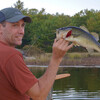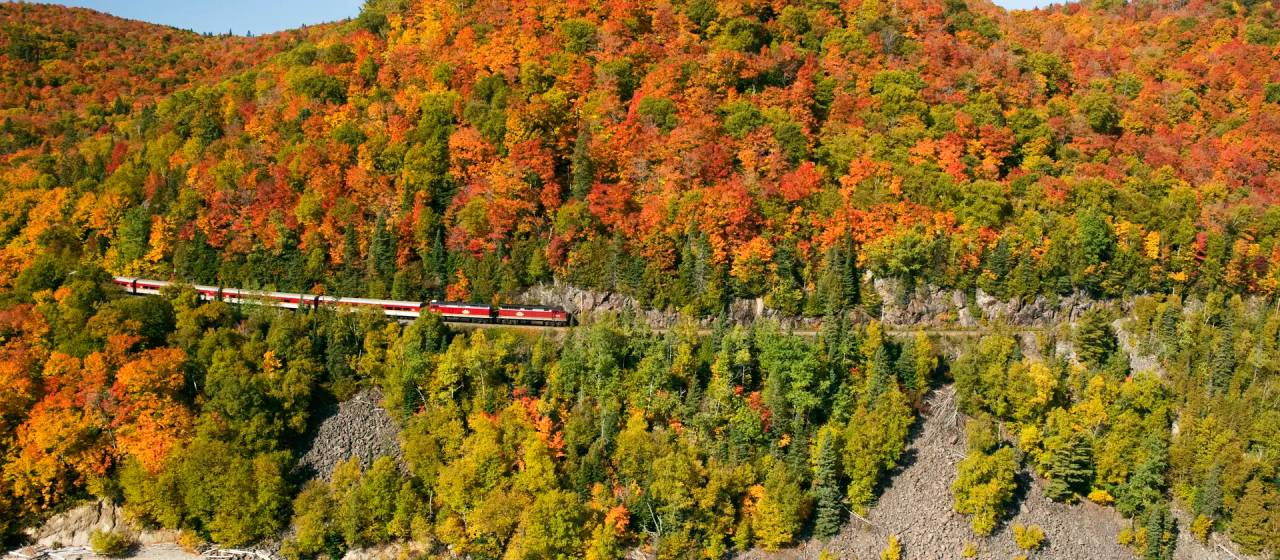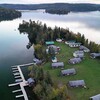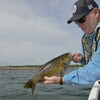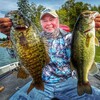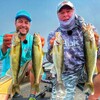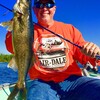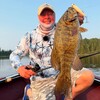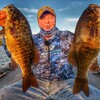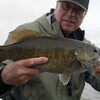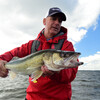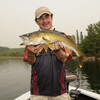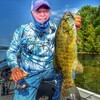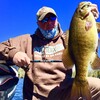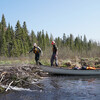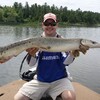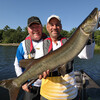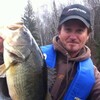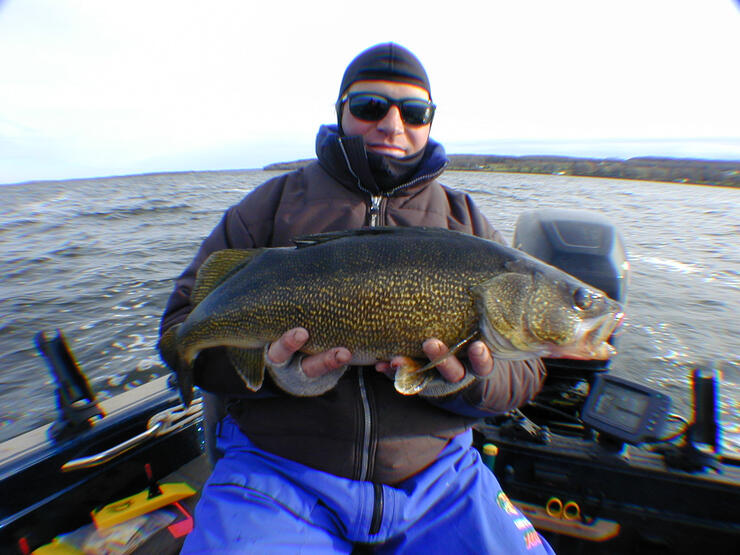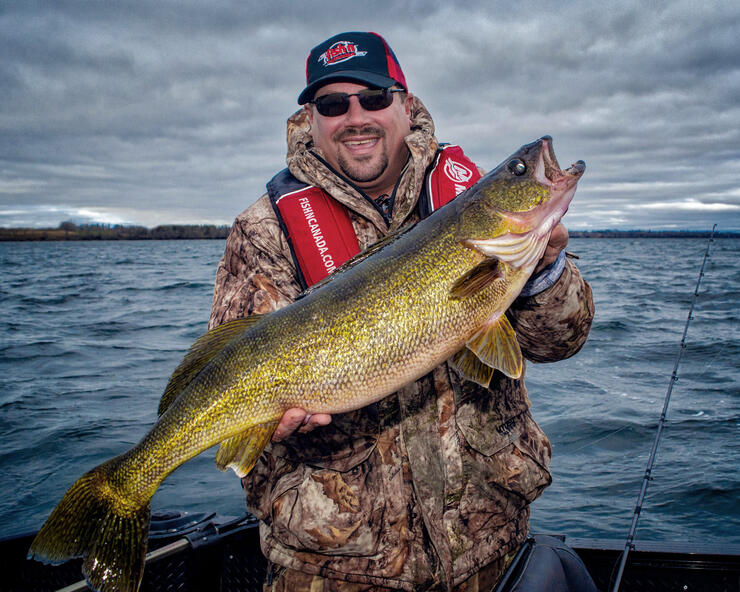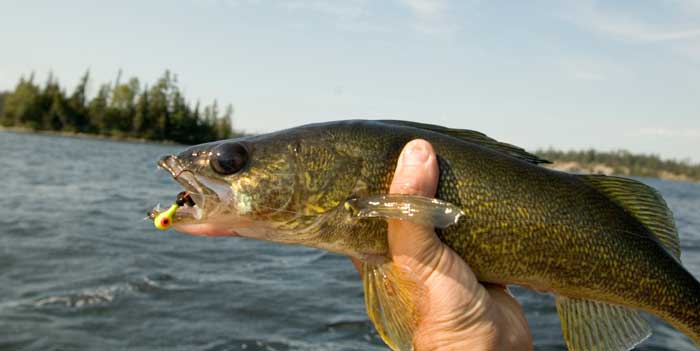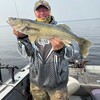
Reaching Deep For Walleye
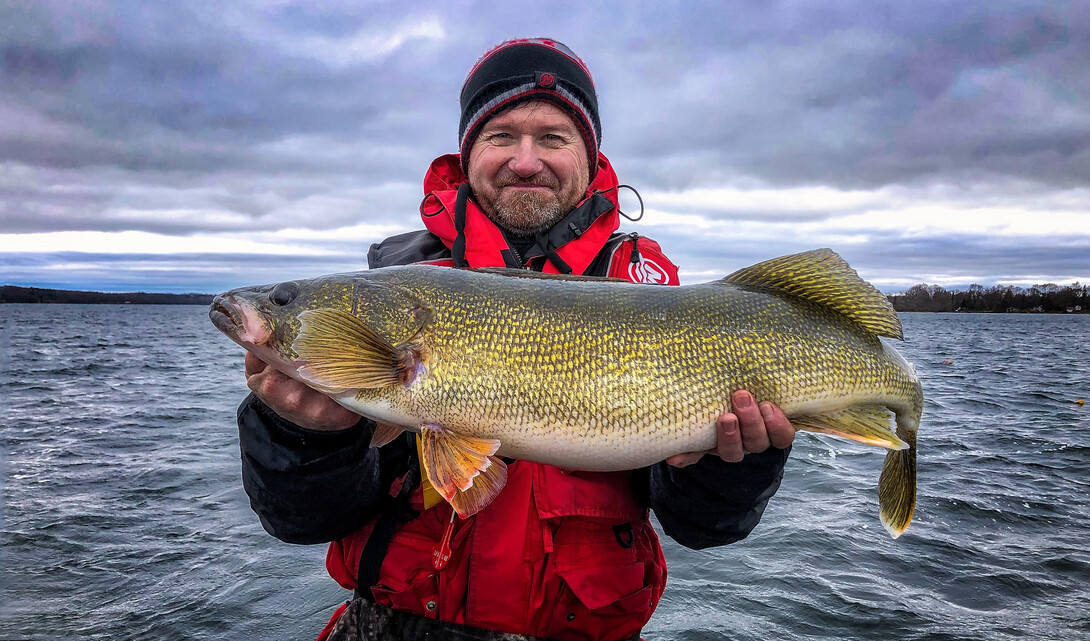
For this late-fall Fish’n Canada episode, Steve Niedzwiecki and I head to my old stomping grounds, Ontario’s Bay of Quinte. As far as cold, open water is concerned, Quinte is one of the world's best for big walleye.
This body of water is one of my absolute favourite Walleye waters in the entire country. Probably the main reason is that I grew up fishing “the bay” for many years. Apparently, many years ago (probably 50+), Quinte was considered an absolutely phenomenal walleye fishery. Through time, though, pollution took its toll on this fish factory and brought it into dire straits.
Fast forward again through time, and the fishery did yet another about-face and turned into an even better fishery than days gone past. In the late 80s and into the early 90s, the Bay of Quinte Walleye fishing turned on fire. I remember as a young lad, fishing the Napanee River for bass and suddenly, all kinds of 1 ½ to 2 ½-pound Walleye were darting out from shallow weeds near lily pads and crushing my crawfish-coloured crankbait. It was insane, and I was in heaven.
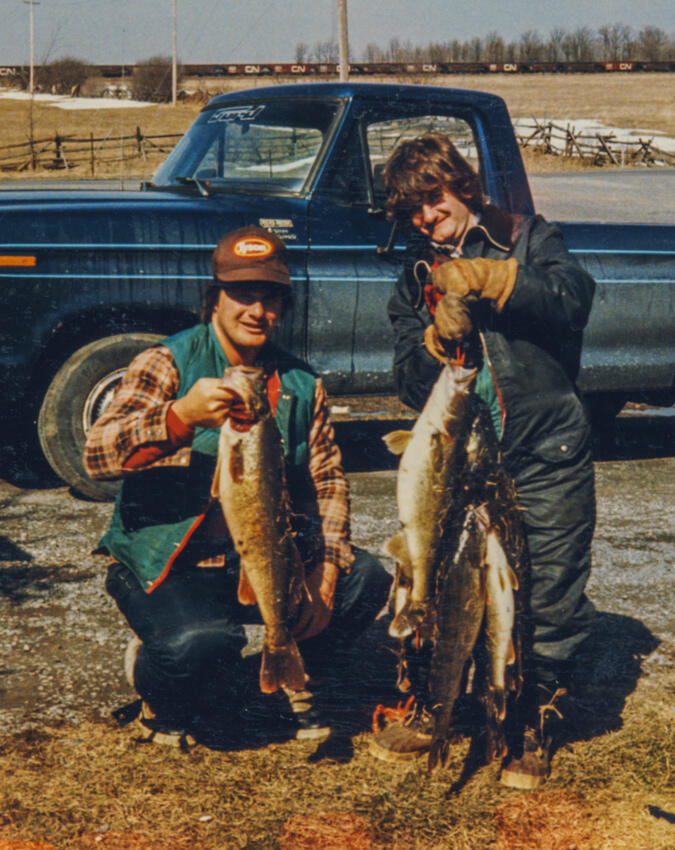
As time went on, my dad, my buddies and I started covering more water in the bay. We mostly fished the Telegraph Narrows, Big Bay, and The Long Reach. It was awesome everywhere and every season, Quinte Walleye fishing seemed to get better and better in both numbers and in size of fish.
Eventually, though, things started to plateau.
It is estimated that the walleye population peaked in 1991 at 1.7 million fish (two years old and up) and declined to 0.9 million by 1998. That decline was felt by lots of anglers, including me.
Bragging About Giants
Around the year 2000, I met a guy in the live bait store in Deseronto. His name was Tom Gustar. Like myself, Tom fished Quinte regularly, but he really liked the late fall. Every time we’d meet up, he’d ask how I was doing regarding the late Walleye and I’d always reply the standard “Lots of eaters, with the odd giant.”
When I asked Tom, he’d usually reply with “We got 12 fish, 10 of them over 10 pounds,” followed by a smirk.
“Come on,” I’d say.
“Yeah, it was a bit slower than last week, but still pretty good… and by the way, we’re getting them trolling crankbaits!”
Trolling cranks in 38-degree water? To me, this guy was one of two things: a complete BS-er, or the best damn fall Walleye angler on the bay.
Turns out the latter was the definitive answer.
I got to know Tom better and we fished the late fall Walleye quite a few times let me tell you, it was the most phenomenal big fish pattern I’d ever done. Still is to this day.
Present Late Fall Walleye Fishing
The giants of the past are still entering the bay every fall. Nowadays, though, the pressure has made these fish extremely different from old.
The typical migration route of these late fall giants is to move in from Lake Ontario’s eastern basin, travel through the Adolphus Reach and then move on to their spawning areas (Napanee River, Moira River, Salmon River, Trent River, etc.)
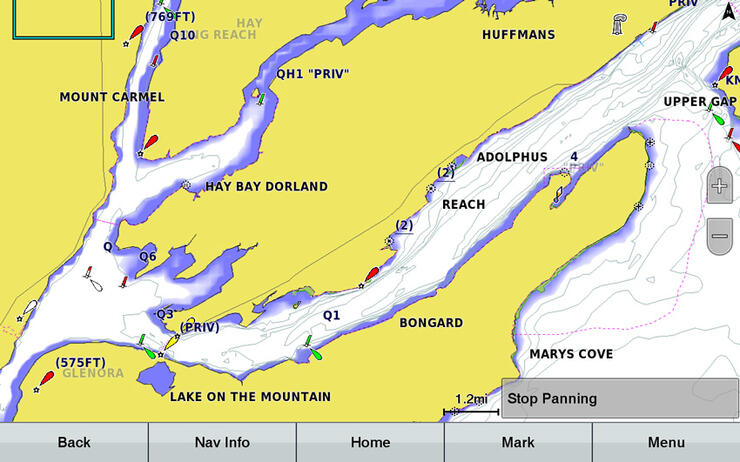
The Adolphus Reach is still the most popular spot to troll.
Although the water is way too deep for walleye, since it is just a temporary migration route they’re on, the fish don’t mind it.
Just because the water is, let’s say, 160 feet deep, doesn’t mean all fish need to live on the bottom. All gamefish know how to suspend if need be, and that’s what these Walleye do.
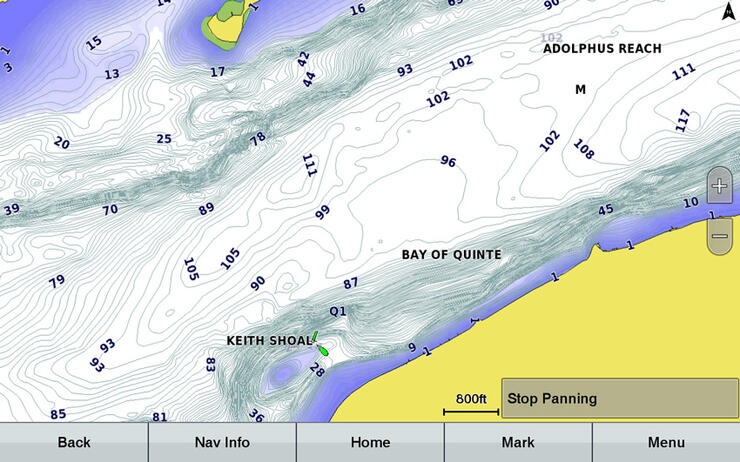
Technique Talk
Back in those early days, the trolling techniques were very much like modern-day fall bay fishing. Trolling rods, line counter reels, planer boards, and crankbaits still rule.
The biggest difference is the distance behind the boat that you need to run your baits, as well as the depth.
Super-long leads help anglers to catch spooky fish, and snap-weights bring smaller baits deeper into the gin-clear water.
Bait colours vary, but walleye cranks with a bit of purple on them always seem to work. It’s weird, but it’s true.
On this shoot, our first trophy walleye came on a Rebel Spoon Bill Minnow. What was special about this bait was that it was an Angelo Viola signature series lure from many years ago. It’s funny—as I was setting up the bait selection for this trip, I saw two of the Angelo baits and said to myself “these have to work, they look great!”
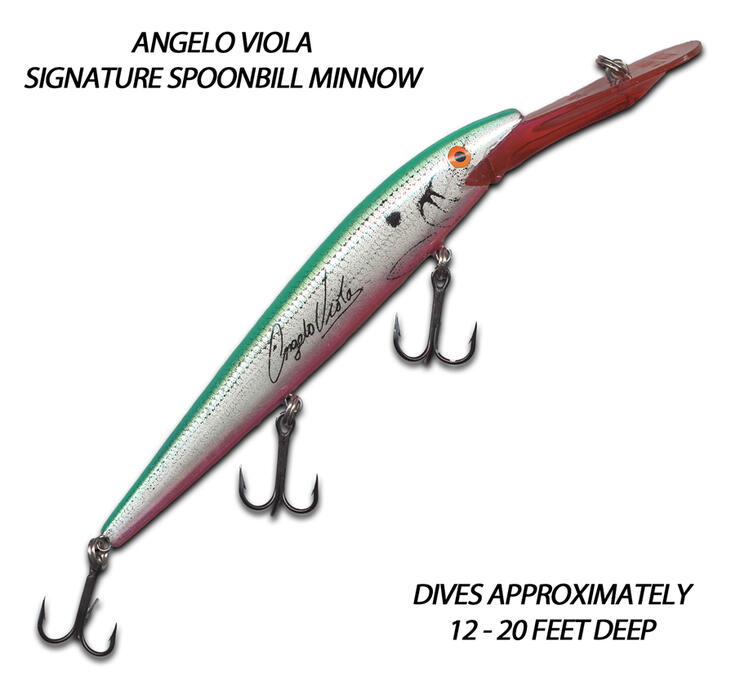
The other producer for the trip were deep Husky Jerks in a colour called Barbie. I hear ya, I thought the same thing too: Barbie… really??
Barbie and Naked Barbie are custom colours that the locals have been running. We had to try them, and they worked.
A Bit About Planer Boards
When planer boards were first invented, they were the big heavy boards that were let out on some cable with a gigantic reel. You can still buy and use this type of board; but the smaller, more compact inline planer boards have taken up a large spot in the board trollers’ lives. Small boards with line-counter reels can still handle big baits and especially big fish.
The Quinte Bay Area
The trolling area for these giants is pretty good-sized. At the Lake Ontario edge, normally people start somewhere around the gap and troll all the way to Picton Bay. There is a law, however, that most people take advantage of.
As stated in the Ontario fishing regulations, anglers are allowed to run two lines out of a boat; however, the following waters are excluded: Jordan Harbour, Hamilton Harbour, Toronto Harbour, Frenchman’s Bay, Murray Canal, Presqu’ile Bay, Weller’s Bay, East Lake, West Lake, the Bay of Quinte (the waters lying west of the Glenora Ferry), the St. Lawrence River (waters lying east of a line drawn between Bishops Point and the easternmost tips of Howe and Wolfe islands), and all other tributaries to Lake Ontario.
This means that if anglers stay on the Lake Ontario (east) side of the Glenora ferry, they are legally allowed to run two rods per person. This is a huge advantage.
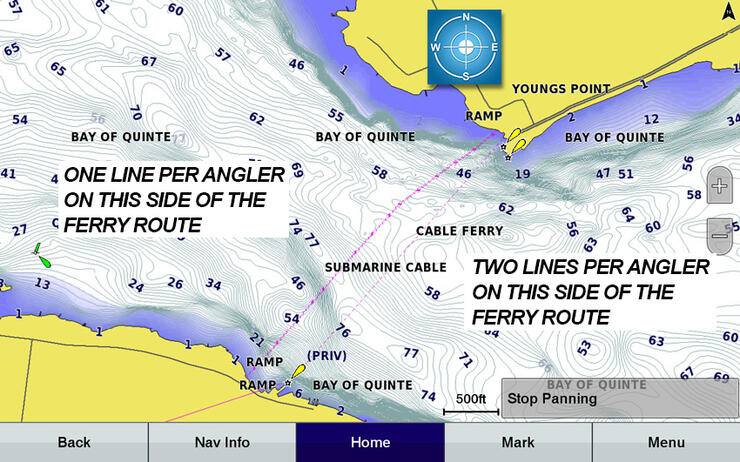
Having four or even six crankbaits out at different distances and depths can help figure the bite out much quicker and better than up to just a few rods.
How We Did
To say the big fish are still alive and roaming the reach is an understatement. Trust me, they are still here and in numbers. As anglers, we must adapt and look for ways of connecting with these true trophies.
Steve and I caught a variety of fish sizes, including what we went for in the first place. Four fish exceeding 10 pounds. It was a mini-version of days gone past.
Most definitely it was a lot of work, but it was well worth it.
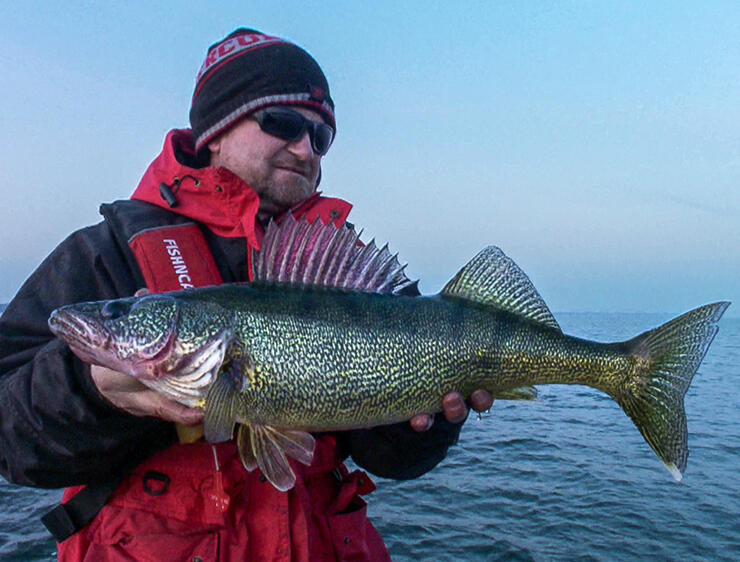
Where We Stayed
For this trip, we stayed at the Picton Harbor Inn. This is a gorgeous facility that is owned by two of the best walleye anglers in the area.
There’s a breakfast and lunch restaurant (and lots of local eateries close by for supper), a fantastic docking facility complete with power for charging, and modern clean rooms.
They have everything that travelling walleye anglers need.
If you don’t have a boat, then there are lots of guides in the area that can be booked through the hotel (make sure you book well in advance of your trip).
Tourism In The Area
The town of Picton is a classic vacation spot. The buildings, housing, and just the look make this place the ultimate in small-town history.
A few things to do and see near Picton are the Sandbanks Provincial Park (one of Ontario’s most unique provincial parks), the historic Crystal Palace, and the County Youthpark. The downtown area of Picton is a perfect place to park the car and walk, taking in all the classic stores, shops, and restaurants.
Wineries are a huge attraction in the area. The Black Prince Winery sits right on the edge of Picton. Here’s a list of some local wineries.
Getting There
To get to this show’s awesome giant late-fall Walleye fishing, we first drove east on Highway 401 and then took road 49 south at Marysville. We next turned left onto Bridge St at the three-way intersection in downtown Picton. From there, it's a quick left to the parking lot at the Picton Harbor Inn.
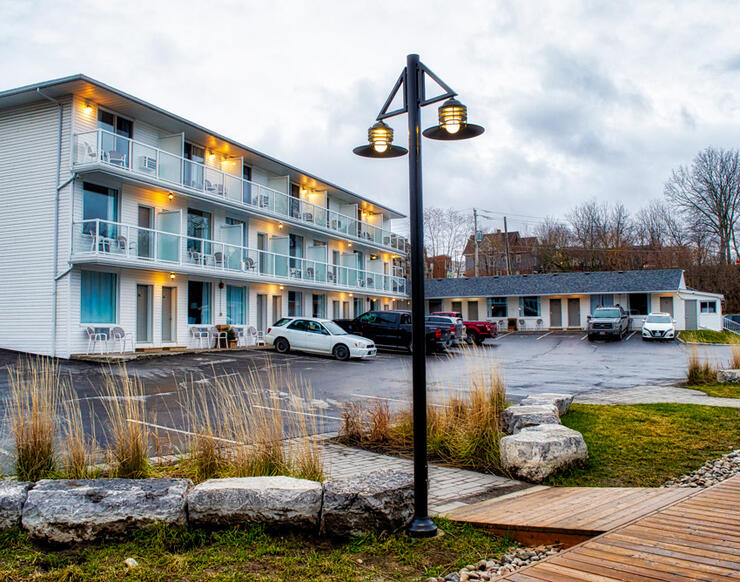
If you don't have a boat, why not hire one of the local guides? With daily trips from opening day to freeze-up and boat-to-boat networking, they're always onto fish.
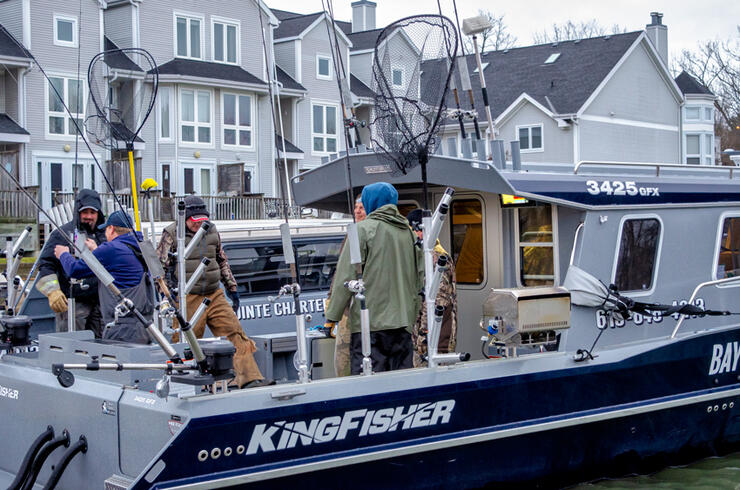
Hotspot
This episode’s Hotspot was an area along the Adolphus Reach, which joins Lake Ontario to the Bay of Quinte.
This was the best area for this trip; however, things change daily and sometimes even hourly when trolling for open water walleye.
While trolling random areas for migrating Walleye, make your passes wide apart at first to cover a lot of areas.
Once you catch a walleye, drop in a waypoint and then make a wide circle to go back over that same area at least two more times.
If you connect with another fish, keep running passes until the fish stop biting, and then and only then, move on.
Covering lots of water is the key to finding and catching this cold water, late-season walleye.
For this Hotspot’s GPS coordinates and more, check out our Hotspots Page
Baits: Walleye Style Crankbaits
Presentation: Trolling
Depth: 60-125 Feet
Recommended Articles
Prime Time for Ontario Panfish

The Ultimate Social Distancing Getaway
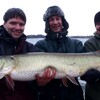
Who Let the Dawgs Out
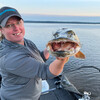
Become a World-class Fishing Guide
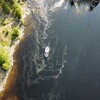
3 Great Walleye Lakes
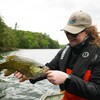
Fishing The Shoulder Season
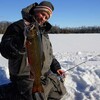
Shoreline Strategies
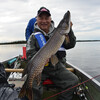
Spring Fishing Tips For Any Angler
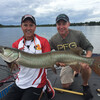
Musky Mayhem in the Kawarthas
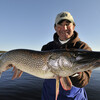
Planning for Pike
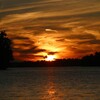
10 Facts About Lake of the Woods
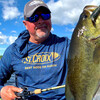
Wasi Lake Fishing
Catching Ontario Walleye
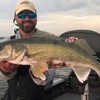
Lac Seul
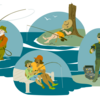
Test Your Fishing Smarts
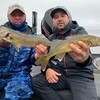
Abitibi Walleye Experience
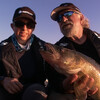
Lodge 88: Keeping it in the Family
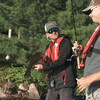
Fish'n Canada in The Rough
